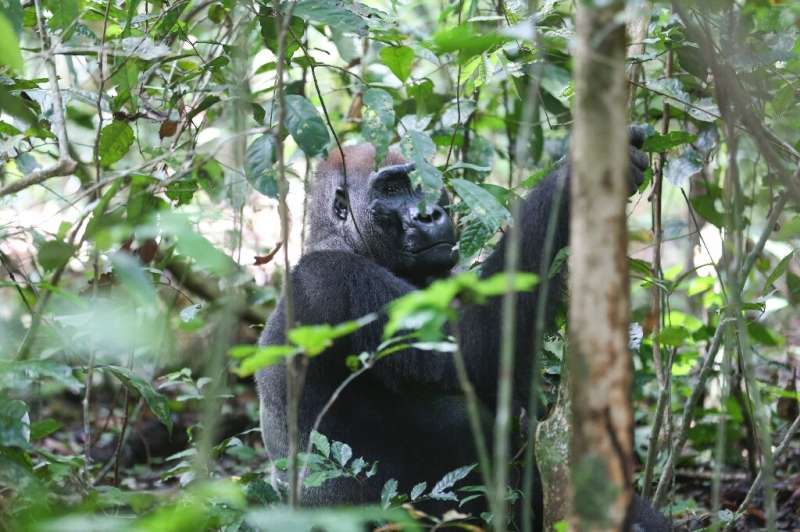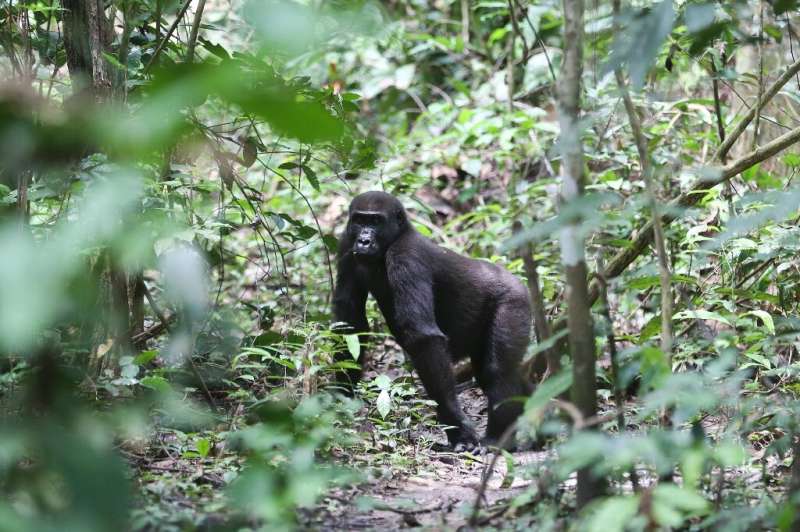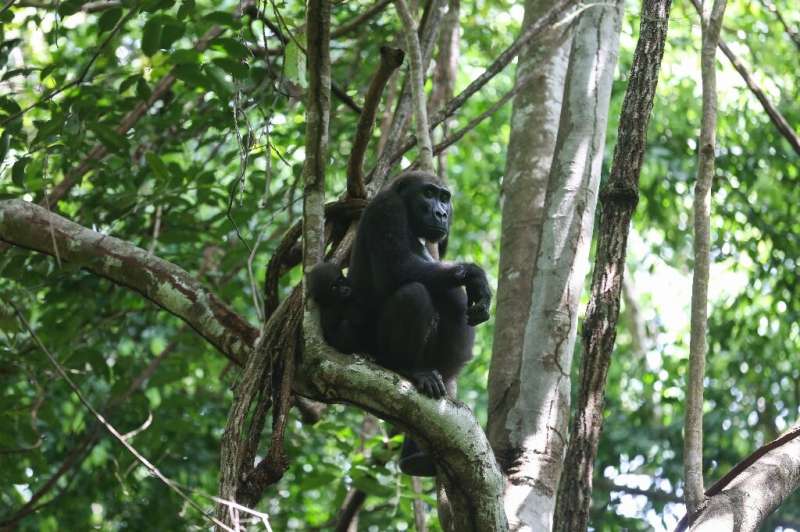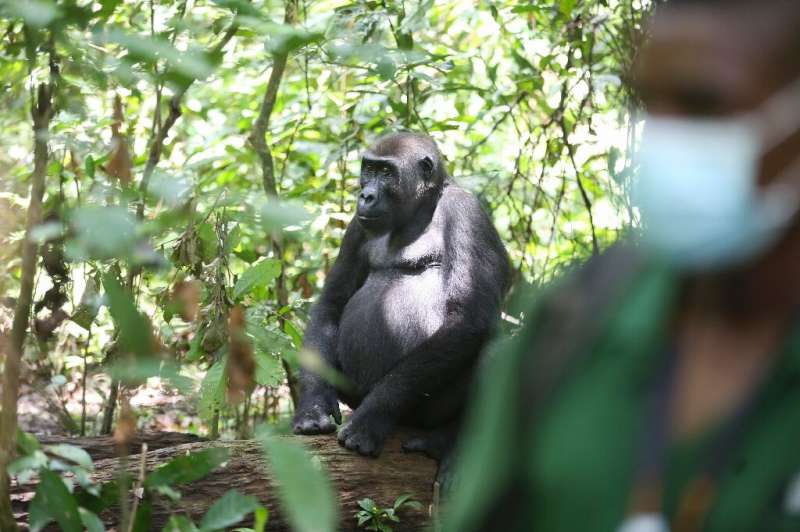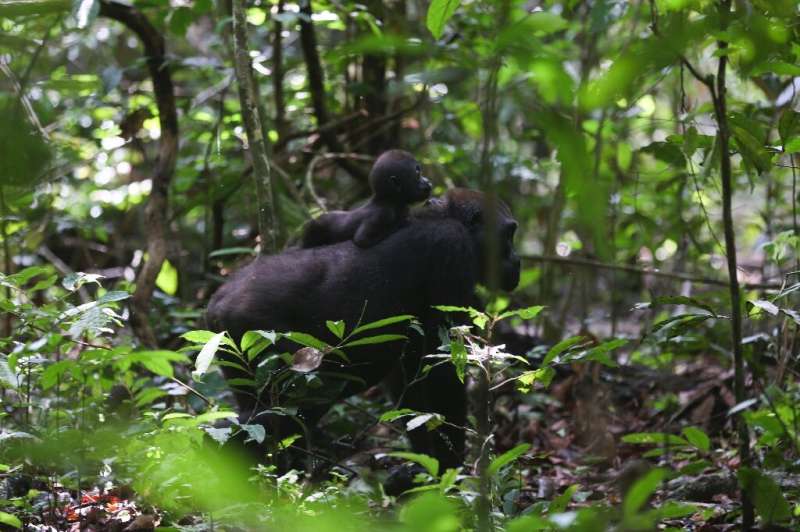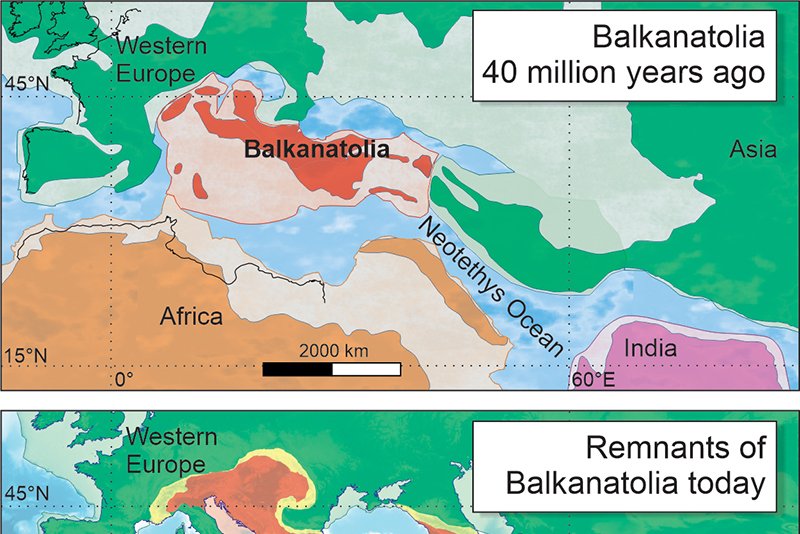
Map showing Balkanatolia 40 million years ago and at the present day.
Feb. 22 (UPI) -- Scientists have discovered a lost continent they call Balknatolia wedged between Europe, Africa and Asia that allowed mammals from Asia to colonize Europe earlier than once thought.
Their findings have been published in the March 2022 volume of Earth Science Reviews.
"We know that, around 34 million years ago, Western Europe was colonized by Asian species, leading to a major renewal of vertebrate fauna and extinction of its endemic mammals, a sudden event called the 'Grand Coupure,'" the French, American and Turkish researchers at CRNS who led the study said in a statement. "Surprisingly, fossils found in the Balkans point to the presence of Asian mammals in southern Europe long before the Grande Coupure, suggesting earlier colonization."
Prior to the Grand Coupure, Western Europe and Eastern Asia had separate animal life for millions of years, the statement noted. European forests had Palaeotheres, extinct animals related to present-day horses, and Asia was populated by diverse mammal families that are now found on both continents.
The team of paleontologists reviewed and reassessed earlier discoveries in light of current geological data related to the Eocene region corresponding to present-day Balkans, Europe, and Anatolia, Turkey.
Much of the region "was home to a terrestrial fauna that was homogenous, but distinct from those of Europe and Asia," the review found, the CNRS statement said. "This exotic fauna included, for example, marsupials of South American affinity and Embrithopoda (large herbivorous mammals resembling hippopotamuses) formerly found in Africa. The region must therefore have made up a single land mass, separate from neighboring continents."
The team also found "a new fossil deposit" from Asian mammals in Anatolia, "dating from 38 to 35 million years ago," the statement said. They also found jaw fragments from Brontotheres animals resembling rhinoceroses that died out at the end of the Eocene Epoch.
"All this information enabled the team to outline the history of this third Eurasian continent, wedged between Europe, Africa and Asia, which they dubbed Balkanatolia," the statement continued. "The continent, already in existence 50 million years ago and home to a unique fauna, was colonized 40 million years ago by Asian mammals as a result of geographical changes that have yet to be understood. It seems likely that a major glaciation 34 million years ago, leading to the formation of the Antarctic ice sheet and lowering sea levels, connected Balkanatolia to Western Europe, giving rise to the 'Grand Coupure.'"













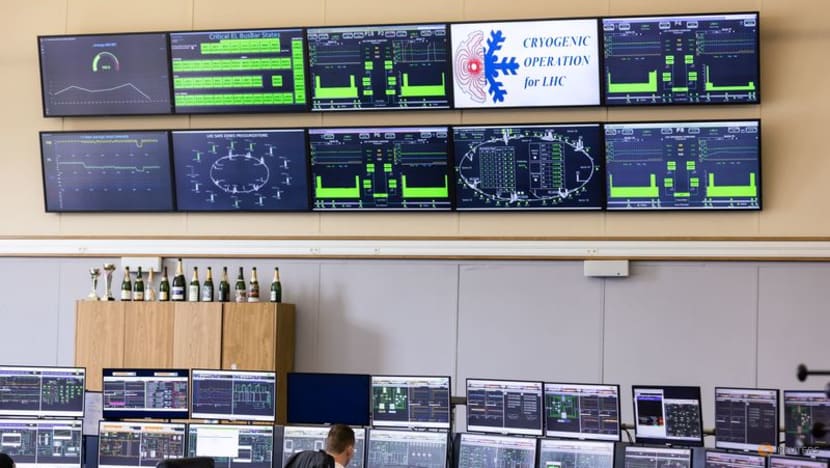
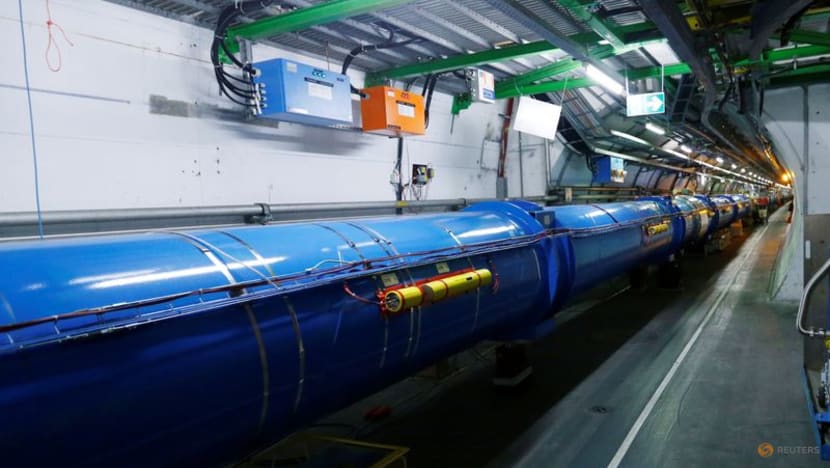





/cdn.vox-cdn.com/uploads/chorus_image/image/70782491/1240021572.0.jpg)

